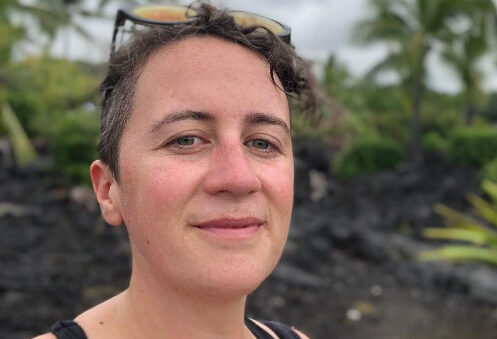During this year’s edition of the Cannes Film Festival, FWD-Doc, a collective of non-fiction filmmakers living with disabilities, released a statement about the fest’s overall accessibility. Despite Cannes’ sporadic attempts at inclusion during the past few years, “rampant inaccessibility is preventing disabled attendees from participating fully — a detriment to career advancement, the entertainment industry, and cultural representation,” the group emphasized. Yet Cannes isn’t the only festival that could stand to revamp its accessibility measures, making its environment more welcoming for people of all abilities. According to Variety, a new initiative evaluating film fests based on their accessibility, the Accessibility Scorecard, will launch July 22.
Filmmaker and former International Documentary Association exec Cassidy Dimon developed the scorecard alongside FWD-Doc and the Film Festival Alliance. The goal is to collect data from a festival’s participants and attendees — via an online, mostly-multiple choice questionnaire — that will then be shared with fest organizers.
“Right now, the burden is on the filmmaker or attendee to provide feedback and go to a festival and tell them what’s wrong or right — they can’t just [focus on] their job,” Dimon said. “Part of this initiative is about making it as easy as possible for people to provide feedback without giving so much of their time and labor, which they’ve already given so much of.”
Covering topics such as website accessibility, in-person venue accessibility, and accessibility for in-person screenings and events, the Scorecard will be sent to participating festivals as well as members of the Film Festival Alliance and FWD-Doc. Data will be gathered whether a fest is a group member or not. Non-participating festivals such as, you guessed it, Cannes, can request the feedback.
“Our hope is that by enabling festival attendees to provide feedback, festivals will have abundant data on where they can improve accessibility,” commented interim FWD-Doc director Amanda Upson, who first came up with the idea. “The Scorecard, in and of itself, will also provide useful information to festivals as to what accessibility they need to consider as they plan for their festivals. The Scorecard will serve as a tool for filmmakers and audiences to share their experiences easily with FWD-Doc, Film Festival Alliance, and the particular festival they have attended.”
One action that all festivals can take right now, Upson revealed, is adding easy-to-find contact info on accessibility accommodation requests to their websites and promotional materials. “A festival representative will need to monitor the email/phone number, but opening that communication path is such an easy way to put a person who needs to request accommodations in touch with the festival,” she said.
Cannes attendees with disabilities reported multiple issues and barriers at the 2022 edition, which wrapped up this past weekend. Per Variety, these included “an in-person registration window that was 5′ off the ground, requiring one to stand; standing-only access to kiosks and customer service desks; accreditation desks and computer kiosks that were too high for wheelchair users to access; inadequate signage for disabled filmmakers and others who require access accommodations; no mapping of accessible routes to screening locations; a screening reservation system that did not detail the availability of captioning or other accessibility options; inconsistent use of ‘disabled’ tags on badges to assist with accessible seating needs; no clear signage for access to the Palais theaters, the Grand Lumiere, and Debussy, without using stairs; and no transport (mobility assistance) between festival venues.”
The source continues, “Variety also observed a lack of accessibility in the Palais des Festivals’ press conference room, which only has steps leading into the main seating area. Without a ramp present, one journalist who was using a wheelchair had to get out of the wheelchair and slowly descend the steps before getting back into her chair.”
In response, FWD-Doc and 1IN4, a Hollywood disability activism org, have issued several demands for Cannes to employ next year. The fest has been called upon to formally commit to accommodating filmmakers and attendees with disabilities; provide access and inclusion training for its entire staff; offer attendees with disabilities the opportunity to communicate their access needs prior to the festival; and clearly identify a point person for accessibility requirements.
“Next year’s festival should be a sharp, vivid contrast to 2022’s lackluster response to the growing, ongoing outrage over the dismal lack of inclusion at Cannes,” said FWD-Doc co-founder and “Crip Camp” co-director Jim LeBrecht. “This isn’t complicated nor should it be difficult for anyone to understand. All we’re asking for are the same things our non-disabled peers routinely take for granted.”







